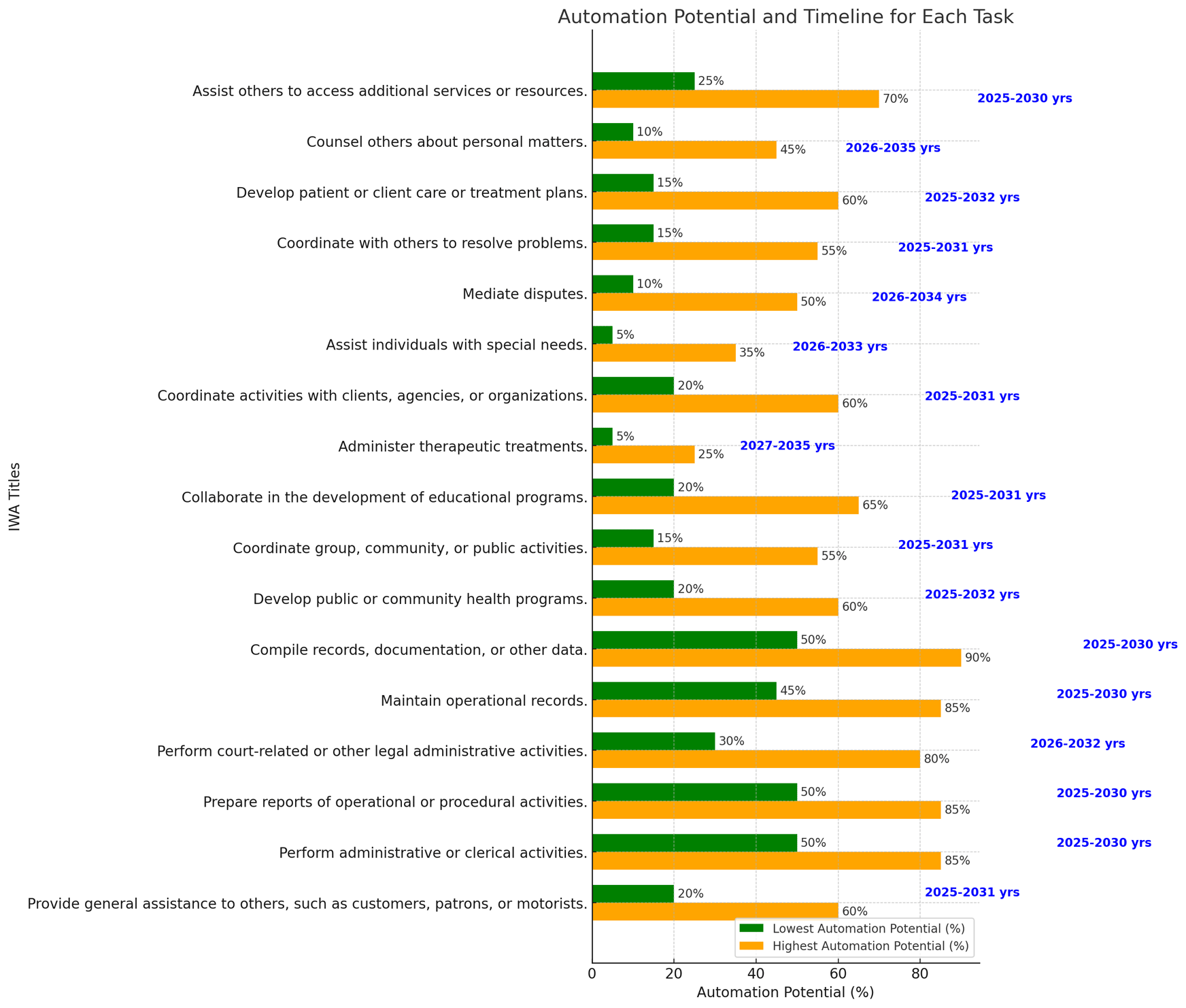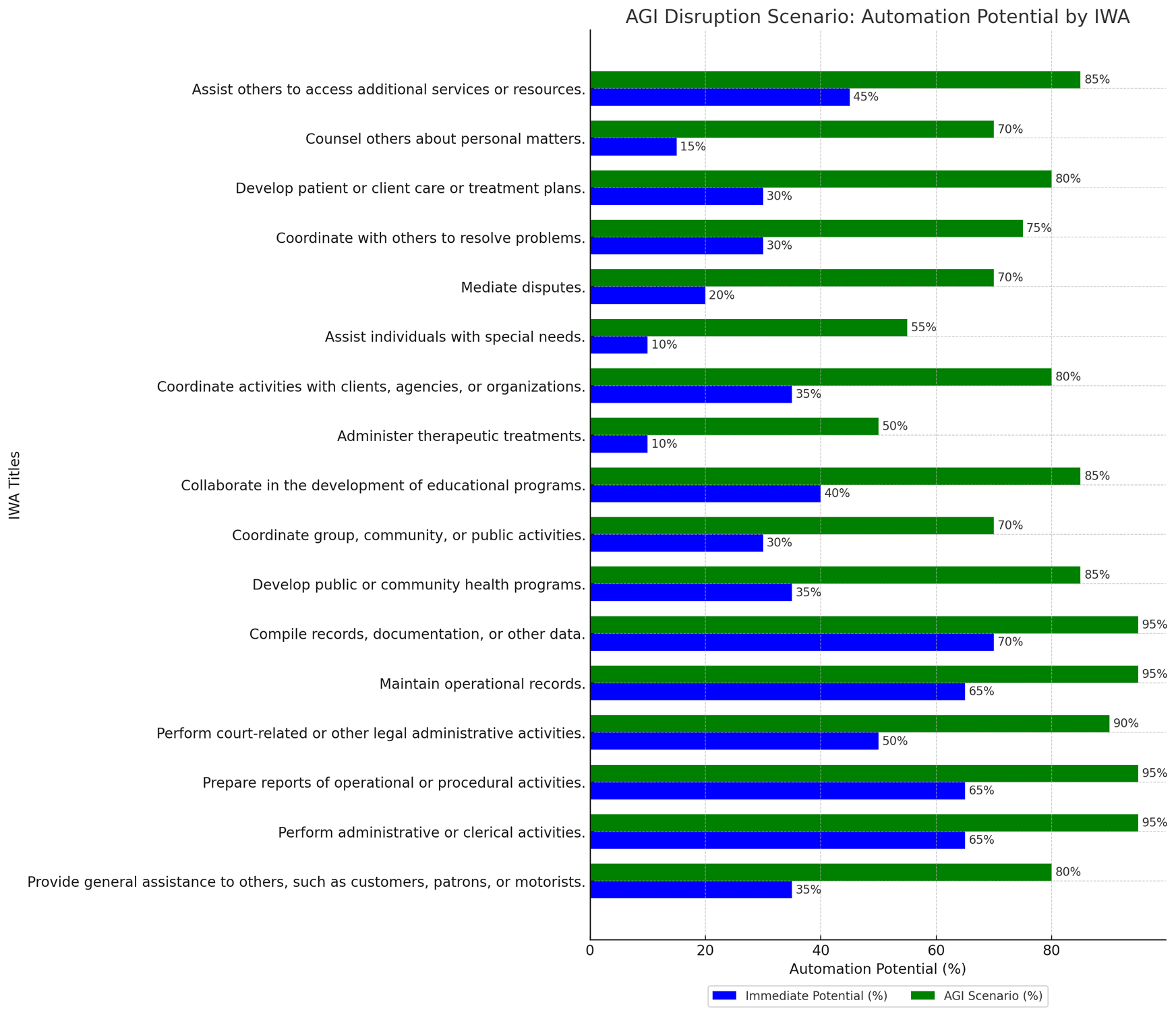Issue 8: Social Worker
AI job disruption forecasting — Issue 8
The social work profession focuses on community development and interventions to uplift the lives of individuals in need. Beyond job replacement fears, AI is quietly reshaping how social workers perform everyday tasks.
We used the job description of a Social Worker posted on a public job portal.

Figure 1: Automation Potential
Figure 1 explores how different responsibilities of Social Workers may be impacted by automation. While deeply interpersonal tasks like counseling, mediating disputes, or assisting individuals with special needs show low disruption potential (only 35–50% at most), more administrative and data-handling duties such as compiling records, maintaining operational logs, and preparing reports are projected to be up to 85–90% automatable, with changes likely to begin between 2025 and 2032. This highlights a trend where AI is less likely to replace emotional labour but will significantly affect documentation-heavy aspects of the job.

Figure 2: AGI Disruption
Figure 2 compares current automation capabilities with those projected in an Artificial General Intelligence (AGI) scenario. Even today, administrative and reporting tasks show immediate automation potential of 65–70%, which jumps to 95% or more under AGI conditions. However, core human-facing tasks like counseling and coordinating with others to resolve problems remain relatively protected even under AGI, due to the complex social, ethical, and emotional intelligence required.
These insights show that the social work profession is less likely to be eliminated by AI but will be redefined. Professionals in this field will need to focus more on high-empathy, high-judgment aspects of their work, while preparing to offload documentation tasks to automated systems.
